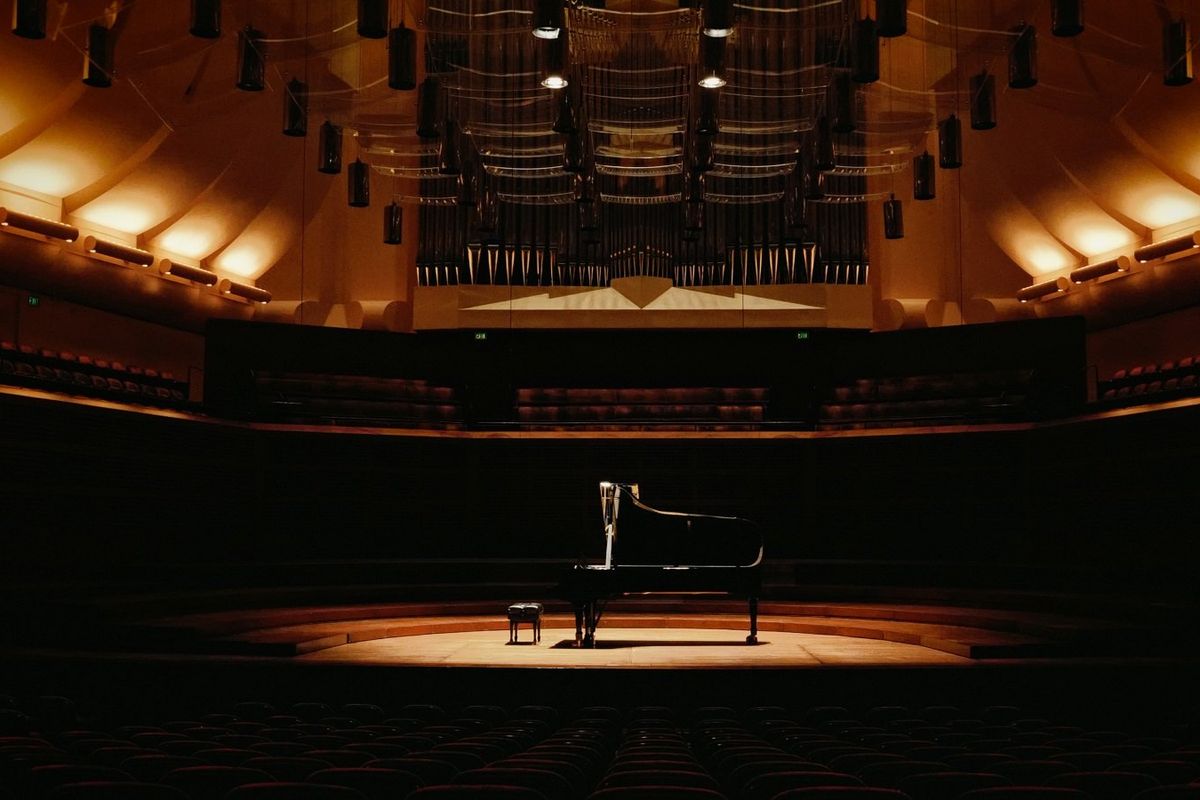Russian composer Alexander Scriabin couldn’t just hear music, he could smell its chords and see its colors. He experienced music as something all-encompassing and eternal, a key to unlock consciousness.
But while the synesthetic musician could put his experience into words, even adding notes on how to visually choreograph his 1910 tone poem Prometheus, Poem of Fire, audiences have never been able to follow him into his multi-sensory universe.
“Scriabin scored Prometheus for light and color as well as music, but one of his dreams was to add more sense to the score, including scent,” says pianist Jean-Yves Thibaudet. Now, after more than a century of waiting, Prometheus, Poem of Fire will finally be performed as the artist intended via a boundary-breaking collaboration between Thibaudet, the San Francisco Symphony, and Cartier’s in-house perfumer, Mathilde Laurent.
The idea to interpret Prometheus olfactorily dates back to the start of the decade-long friendship between Laurent and Thibaudet. His dream, he told her then, was to perform Scriabin’s work kaleidoscopically, with sound, scent, and light all conspiring together. Laurent was enchanted by the idea and began looking into the possibilities for incorporating aromas into a live performance.
Eventually, the pair joined forces with SF Symphony music director Esa-Pekka Salonen to bring the vision to life. When Thibaudet takes a seat at his grand piano on stage at the SF Symphony on March 1st, he will be accompanied by diffusers strategically delivering scent at key moments, and state-of-the-art lighting technology that immerses the audience in a web of color and shadow.
“For me, smells have an incredible power,” says Laurent. “When you smell, the reason centers are not activated. On the contrary, they are shut down because it is the limbic brain and the hippocampus that are taking control and these are the centers of emotions, instinct, and memories. Perfume’s smells have the capacity to enhance the emotional and visceral comprehension of music.”

Scriabin’s choice of subjects for his tone poem was, indeed, a visceral one. In Greek mythology, Prometheus was both the creator of humans and a trickster with an aversion for authority figures. When he defied Zeus’ order to teach the humans to properly worship him, the king of the gods took away their use of fire, plunging them into darkness. But Prometheus couldn’t bear to see his creations suffer. In the dead of night, he stole a spark of fire from the gods and gifted it, and other essential knowledge, to humans. Incensed at this betrayal, Zeus sentenced Prometheus to an eternity spent chained to a rock in which, every night, an eagle would consume his liver.
Just like the original myth, fire plays a central role in Scriabin’s Prometheus. Laurent thought The Thirteenth Hour, a scent she created for Cartier in 2009 based on the first sweet smoke of fire in a hearth—with hints of leather, wood, vanilla, cloves, and narcissus flower—might be a good way to represent the essential element. When she discovered that the score is illuminated with the warmth of fire in the 13th minute of its 20-minute runtime, it gave her goosebumps.
“I used to say that the smell of fire was the first scent worn by man. Perfumery is born from fire,” says Laurent. “So, creating this tribute to fire and the source of perfumery 10 years before, I was already speaking of Prometheus.”
While Thibaudet and Laurent are not the first to envision a performance that could evoke the story and mood of Prometheus, Poem of Fire through a variety of senses, it’s taken time for technology to catch up with Scriabin’s synesthetic gift. Prometheus will be the first performance of its kind in the Bay Area, but its interpretation into a multi-sensory experience may foreshadow the future for some live musical performances.
“This project is optimistic,” says Salonen. “It shows that technology can be used for very noble purposes, for art and enhancing people’s natural sensory experiences in this world. Prometheus paid dearly, but we don’t have to—it’s up to us to decide.”
// Scriabin’s Prometheus, followed by Bartok’s Bluebeard will take the stage at Davies Symphony Hall on Friday March 1 at 7:30pm, Saturday March 2 at 7:30pm, and Sunday March 3 at 2pm; 201 Van Ness Ave. (Civic Center), sfsymphony.org.






















